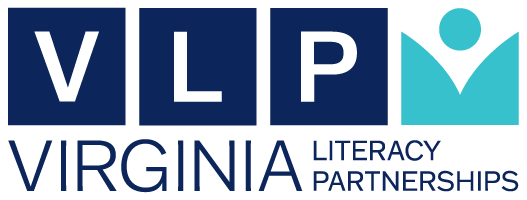Reading and Academic Development Research Group
What We Do
The Reading and Academic Development Research Group examines reading and related areas of academic development across different groups of school-age children. Broadly, the research focuses on meeting the diverse instructional needs of students from specific backgrounds by identifying reading and writing difficulties and developing effective instructional approaches.
Our Work
Past and ongoing projects involve longitudinal research investigations of the development of reading and writing skills over multiple years in children who are classified as English learners (EL), children with autism spectrum disorder (ASD) or with attention-deficit/hyperactivity disorder (ADHD), and children with early risk profiles for reading difficulties and disabilities. Intervention projects have been conducted with many subgroups of children including EL, ASD (with and without intellectual disabilities), ADHD, and reading disabilities.
RADR Lab Research Projects
- Longitudinal Study on Reading, Writing, Social, and Cognitive Development of Young Children with Autism Spectrum Disorder
-
This exploratory study uses primary data collection to investigate the longitudinal development of 100 students with ASD and 100 typically developing students between the ages of 4 and 8 in their development of reading, writing, social communication, social cognition, attention and processing skills.
Previous research findings motivate the development of effective reading interventions for students in mid-elementary school through adolescence, but less is known about the early development of reading and emergent literacy and how they relate to social communication, cognition and executive function, and long-term reading comprehension and writing outcomes to fully inform the development of early and preventative reading and writing interventions for younger students with autism spectrum disorder (ASD).
Findings will provide more refined guidance for early instruction and intervention development designed to address the specific academic and social developmental needs of students with ASD in both preschool and the primary grades.
- Testing the Efficacy of Reading Rules: A Tier 1 and Tier 2 Intervention for First-Grade Children with Decoding and Comprehension Difficulties
-
Purpose: The purpose of this project is to evaluate the efficacy of Reading RULES for first-grade students who are at risk for serious reading difficulties and disabilities in both word reading and comprehension.
Students who do not learn to read adequately in the early grades typically have persistent reading difficulties. Potential persistent reading problems may be prevented or their severity reduced if they are addressed aggressively and early. Reading RULES combines whole-class and intensive small-group intervention designed to improve word reading, fluency, listening, and reading comprehension.
Project Activities
Approximately 96 first-grade classrooms will participate in this research project. The study will focus on five first-grade students from each classroom at risk for reading difficulties in both word reading and comprehension. Reading RULES combines whole-class and small-group intervention with carefully-sequenced instruction in word reading, fluency, listening, and reading comprehension. A randomized controlled trial, with teachers randomly assigned to either a treatment or business-as-usual control group, will be used to study the efficacy of the intervention. Students will be assessed before, during, and after intervention and in second grade to determine whether students who receive Reading RULES have better reading outcomes than those in the control group.
- Effectiveness of Interventions for English Learners with Word Reading Difficulties: A Research Synthesis
-
This study meta-analyzed the last four decades (1980–2020) of reading intervention research focused on improving reading outcomes for English (EL) students in Grades K–5 with or at risk for word reading difficulties. Experimental and quasi-experimental group design and single-case experimental design (SCED) studies were included; 10 group design and 7 SCED studies met inclusion criteria (m = 61; total student N = 2,270). Visual inspection of the effect size distribution revealed that the assumption of between-study heterogeneity was not supported; therefore, the findings were synthesized for SCED studies separately from those reported in group design studies. Implications for practice, policy, and future research are discussed.
-
Pilot Study of Unlocking Understanding Professional Development to Support Grade 3 Reading Comprehension
-
This study piloted a reading comprehension instruction professional development intervention for teachers of upper elementary grade students (Unlocking Understanding), exploring the relative effects of two versions of the intervention that varied the degree of lesson scripting. Results indicated a statistically significant difference between the fully scripted and partially scripted (i.e., increasingly teacher-planned) groups on one of three student outcome measures. Specifically, students in classrooms with partially scripted lessons performed better on a statewide reading test (ES = 0.42) than did students in classrooms where teachers used fully scripted lessons. However, there were no significant group differences on two other reading comprehension measures. Teachers reported a high degree of satisfaction with the training, although they stated a preference for fully scripted lessons compared with partially scripted ones. Teachers in both conditions were able to deliver the lessons with acceptable fidelity. Implications for professional development are discussed.
- Fostering Independence While Teaching Students With or at Risk for Reading Disabilities
-
This article describes the GRR model of instruction and provides specific guidance and resources to support special education teachers in implementing the GRR model during small-group reading instruction in primary-grade classrooms, with a particular emphasis on facilitating group and independent practice.
- Observing Two Reading Intervention Programs for Students with Dyslexia
-
This exploratory study examined the nature of instruction provided in two reading intervention programs designed for elementary-grade students with dyslexia (The Multisensory Teaching Approach and Reading RULES!).
Research Team
RADR News
Kids’ Reading Scores Are Lower. Reading Science Should Guide the Response

Autism Postdoctoral Training Program
The postdoctoral research program will provide postdoctoral fellows with extensive research training in the academic, behavioral, and social development of students with autism spectrum disorder (ASD) from pre-K through their transition out of secondary school. The overarching goal of this program is to prepare four fellows (with 2 years of training each) to engage in rigorous research related to the developmental needs of students with ASD and the factors that enhance school achievement. This fellowship is funded via the Postdoctoral Research Training Program in Special Education and Early Intervention via the National Center for Special Education Research within the Institute of Education Sciences.
The program will support fellows in developing research skills, including developing their own research agenda and gaining specific content and methodological expertise as well as professional skills, including leadership, project management, dissemination of research to various audiences and educational stakeholders, manuscript preparation, and grant writing. Fellows will work with up to two faculty mentors that most closely match their individual research agendas and can provide mentoring in needed methodological skills. In collaboration with their mentors, fellows will develop an Individualized Training Plan to guide their training activities. Over the course of the training program, fellows will work on original research projects while also developing their content and methodological expertise by collaborating with their faculty mentors on existing research projects. Fellows will be actively involved in research projects on all levels, from overall grant management to specific research activities such as data collection, analyses, and dissemination of results.
Research opportunities for the fellows currently include (but are not limited to) the following: (1) an exploratory study to better understand how to build a statewide network to improve use of evidence-based practices for students with ASD; (2) a program of studies on the biological, behavioral, and environmental/educational factors that impact language development in children with ASD and other developmental disorders; (3) an evaluation of a curriculum to improve the post-secondary educational and vocational outcomes of high school students with disabilities, including ASD; and (4) a series of research studies on the impact of joint attention on learning and cognition in children with ASD. In addition to research activities with their mentor(s), fellows will engage in multidisciplinary training activities to enhance their content knowledge and professional skills, including seminars/courses on such topic as ASD, writing for publication, preparing for the academic job market, and grant writing.


